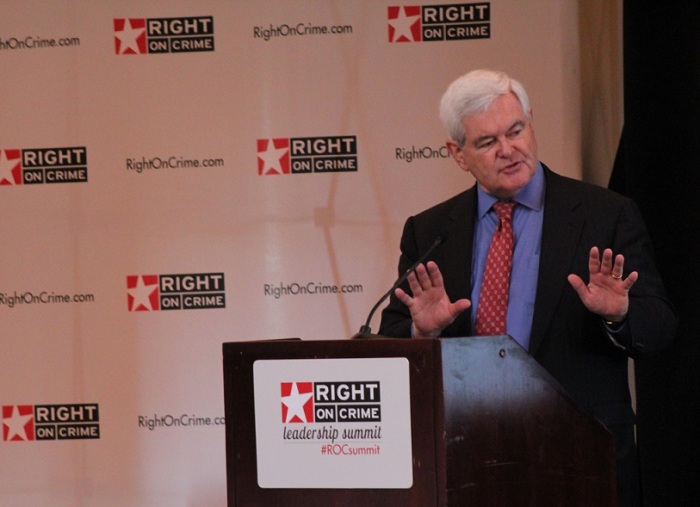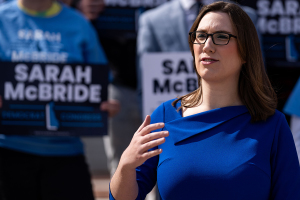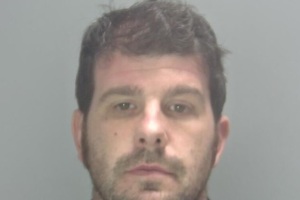Prisoners Should Get Free Education to Reduce Recidivism, Newt Gingrich Says

WASHINGTON — Prisoners should be provided free education in order to reduce crime and recidivism, former Speaker of the House Newt Gingrich declared at a gathering of conservative advocates of prison reform.
Right on Crime, a Texas-based coalition of conservative public figures and elected officials, had a two day Leadership Summit at the Ronald Reagan Building & International Trade Center Tuesday and Wednesday.
Newt Gingrich gave remarks at the Wednesday morning session, describing some of the needs he believed had to be met for meaningful prison reform.
While still supportive of the early 1990's "war on crime" measures championed by the likes of New York City Mayor Rudy Giuliani, Gingrich believed that more had to be done than merely arresting people.
Gingrich told The Christian Post that he believed education was a crucial component for helping to aid individuals released from prison who were able to be reformed.
"When you realize how many of the prisoners score the very bottom of literacy. If you don't learn how to read during a period when we're paying your housing, we're paying your food, we've total control of your life," said Gingrich.
"If we can't figure out a way to use online learning and other systems to help you learn how to read and how to be productive why would we think you are going to get a job when you get out of prison?"
A project of the nonprofit group the Texas Public Policy Foundation, Right on Crime is a conservative-driven effort to reform America's criminal justice and prison system.
The group has a declaration, known as the Right on Crime Statement of Principles, which outlines their objectives.
"As with any government program, the criminal justice system must be transparent and include performance measures that hold it accountable for its results in protecting the public, lowering crime rates, reducing re-offending, collecting victim restitution and conserving taxpayers' money," reads one objective from the Statement.
"An ideal criminal justice system works to reform amenable offenders who will return to society through harnessing the power of families, charities, faith-based groups, and communities."

At the summit, guests got to hear from representatives of the governments of Texas and Mississippi, both of whom had implemented state-level reforms to their criminal justice system.
Speakers spoke about the need to do more than strictly punish offenders, but rather to recognize that convicted criminals were not all hardened repeat offenders.
For Mississippi, their reform efforts included a mixture of lowered drug penalties, changed sentencing procedures, and mandatory minimums.
Texas representatives, which included a message from outgoing Governor Rick Perry, boasted of a decline in crime and imprisonment, with the Lone Star State having closed down a few of its prisons for lack of need.
One of the summit attendees and a signatory of the Statement was Ken Cuccinelli, former attorney general for the Commonwealth of Virginia and a state legislator.
In an interview with CP, Cuccinelli said that he was drawn to the Right on Crime effort due to its strident use of data to help advance prison reform.
"I really believe in using data to come to right outcomes," said Cuccinelli, adding that criminal justice can be "a very expensive arena."
"There are consequences to being wrong. This is about people's lives and public safety. And I want to achieve the maximum public safety I can, consistent with frugality and getting good outcomes."

Cuccinelli also told CP that he felt the federal level will be influenced by the Right on Crime movement as more states adopt the reforms of the conservative group.
"As conservative states not only implement some of these reforms but see the data-driven successes they've had because of them, that's the laboratory of democracy," said Cuccinelli.
"Their congressmen and their senators are more likely to start bringing that to Washington, where the numbers and the dollars are just enormous."




























